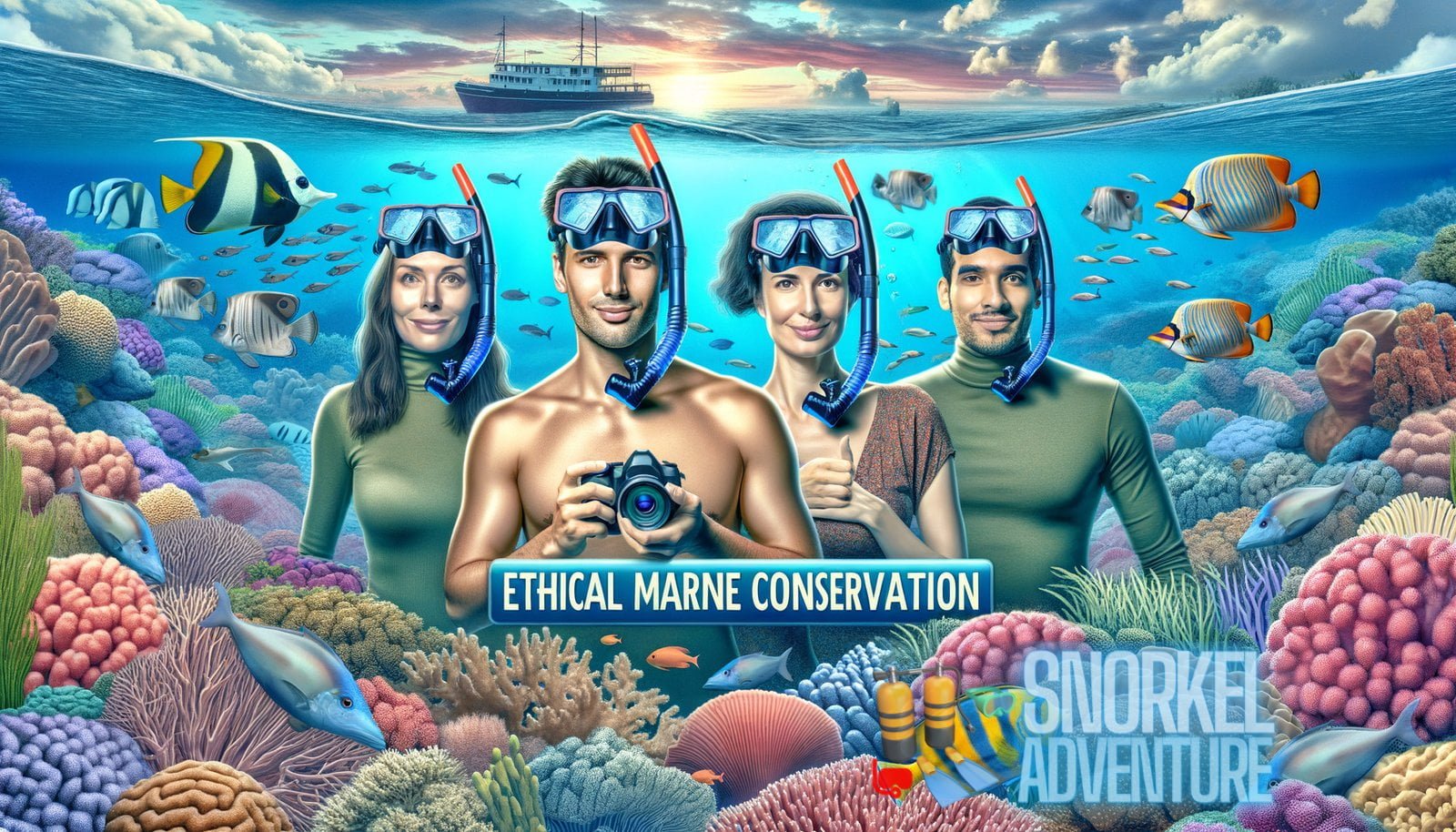Introduction
Snorkeling is a popular underwater activity enjoyed by millions of people around the world. Whether exploring vibrant coral reefs or encountering fascinating marine life, snorkeling offers a unique and exhilarating experience for nature enthusiasts. However, as the world becomes more aware of the fragile state of our oceans, it is crucial to adopt sustainable practices to minimize the impact of snorkeling on marine ecosystems. In this article, we delve into the depths of sustainable snorkeling, uncovering the untapped potential of eco-friendly practices that can help preserve these delicate underwater environments for future generations.
The Environmental Importance of Sustainable Snorkeling
Snorkeling allows us to immerse ourselves in the breathtaking beauty of the underwater world. However, it is essential to recognize the environmental implications and take responsibility for our actions. Here’s why sustainable snorkeling practices are crucial for protecting marine ecosystems:
- Biodiversity conservation: Coral reefs are considered the rainforests of the sea, supporting an incredible variety of marine species. By minimizing the damage caused by snorkeling activities, we can help preserve this biodiversity and protect the delicate balance of underwater ecosystems.
- Climate change resilience: Coral reefs play a vital role in mitigating the effects of climate change by absorbing carbon dioxide and providing a habitat for marine organisms. Sustainable snorkeling practices can help minimize stress on coral reefs, enabling them to adapt and recover from environmental pressures.
- Educational opportunities: Snorkeling is not only a recreational activity but also an opportunity for education and research. By practicing sustainable snorkeling, we can contribute to ongoing scientific efforts to understand and protect marine life.
Unraveling the Enigmatic Depths: Pioneering Strategies to Foster Long-Term Preservation of Marine Ecosystems
As the popularity of snorkeling continues to grow, it is essential to develop innovative strategies that promote long-term preservation of marine ecosystems. Let’s explore some pioneering approaches that aim to unravel the enigmatic depths of sustainable snorkeling:
1. Ecotourism and Marine Protected Areas (MPAs)
Ecotourism offers a unique opportunity to raise awareness about the importance of marine conservation while providing economic incentives for local communities. By designating Marine Protected Areas (MPAs), certain areas can be safeguarded from unsustainable snorkeling practices, ensuring the preservation of essential habitats for marine life. MPAs often have strict regulations in place, such as restricted access, no-touch policies, and responsible tourist behavior guidelines. These measures strive to strike a balance between tourism and environmental protection, enabling visitors to appreciate the beauty of the underwater world while minimizing their impact.
For more information on the role of MPAs in marine conservation, check out this Wikipedia page.
2. Responsible Snorkeling Guidelines
Responsible snorkeling guidelines serve as a set of best practices to minimize the impact of snorkeling activities on marine ecosystems. These guidelines often include the following recommendations:
- No-touch policy: One of the fundamental principles of sustainable snorkeling is to avoid touching, standing on, or disturbing marine life and coral reefs. Even seemingly harmless actions can have detrimental consequences for the delicate balance of these ecosystems.
- Use reef-safe sunscreen: Certain chemical compounds found in conventional sunscreen can harm coral reefs and marine life. It is crucial to choose reef-safe sunscreen options that do not contain these harmful substances.
- Proper waste disposal: Snorkelers should always dispose of their trash properly and avoid dropping any waste into the ocean. This includes plastic bottles, food containers, and any other non-biodegradable items.

By adhering to responsible snorkeling guidelines, snorkelers can actively contribute to the preservation of marine ecosystems and minimize their impact on fragile underwater environments.
If you’d like to learn more about responsible snorkeling guidelines, you can read the informative article here.
3. Eco-friendly Snorkeling Gear
The choice of snorkeling gear can also make a significant difference in minimizing the impact on marine ecosystems. Here are some eco-friendly alternatives to consider:
- Silicone masks and snorkels: Traditional snorkeling gear often contains harmful chemicals, such as PVC, which can leach into the water and harm marine life. Opting for snorkeling equipment made from eco-friendly materials like silicone can help minimize this impact.
- Biodegradable flotation devices: Instead of using inflatable devices made from non-biodegradable materials, consider using biodegradable alternatives. These eco-friendly flotation devices will naturally decompose without causing harm to the environment.
- Reusable water bottles: Bringing a reusable water bottle on snorkeling trips can help reduce the consumption of single-use plastic bottles, which pose a significant threat to marine life.
By making conscious choices when selecting snorkeling gear, individuals can actively contribute to sustainable snorkeling practices and minimize their ecological footprint.
4. Citizen Science and Data Collection
Citizen science programs provide an opportunity for snorkelers to contribute to scientific research and data collection. By collecting data on underwater biodiversity, water quality, and other environmental parameters, snorkelers can assist scientists in monitoring and understanding the health of marine ecosystems. Organizations and initiatives often provide training and resources to help snorkelers become citizen scientists, empowering individuals to make a meaningful impact on marine conservation efforts.
The Future of Sustainable Snorkeling
The outlook for the future of sustainable snorkeling is promising. As awareness and concern for marine conservation continue to grow, more individuals, organizations, and governing bodies are taking steps to protect marine ecosystems. Innovations in technology, such as virtual reality snorkeling experiences, provide an alternative to traditional snorkeling, reducing physical impacts on underwater environments. Ongoing research and advancements in sustainable snorkeling practices will further enhance our ability to explore the depths of the ocean responsibly.
In conclusion, sustainable snorkeling practices are essential for the long-term preservation of marine ecosystems. By adopting responsible guidelines, supporting marine protected areas, choosing eco-friendly gear, and participating in citizen science initiatives, snorkelers can actively contribute to the protection and conservation of these fragile underwater environments. Together, we can unravel the enigmatic depths and unlock the untapped potential of sustainable snorkeling, ensuring a vibrant and thriving future for our oceans.


